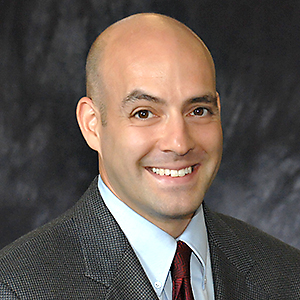The ICC Prosecutor Takes on the Russia-Georgia Conflict
Earlier this week, the the prosecutor of the International Criminal Court, Fatou Bensouda, sought to open an investigation of possible crimes in Georgia. Her focus is the August 2008 fighting that took place there between Russian forces, the Georgian government, and Georgian separatists. Several aspects of the prosecutor's move deserve attention.
Published by The Lawfare Institute
in Cooperation With

Earlier this week, the the prosecutor of the International Criminal Court, Fatou Bensouda, sought to open an investigation of possible crimes in Georgia. Her focus is the August 2008 fighting that took place there between Russian forces, the Georgian government, and Georgian separatists. Several aspects of the prosecutor's move deserve attention.
First, because the prosecutor is seeking an investigation without a referral from a member state, she must secure the approval of a three-judge panel. That requirement was included in the Rome Statute as a way of reassuring states that there would be internal checks on the prosecutor. And the judges thus far have shown no sign of acting as a rubber stamp for the prosecutor. One judge (the late Hans-Peter Kaul) dissented when the prosecutor sought to open a proprio motu investigation in Kenya. And the judges required the prosecutor's office (OTP) to produce additional information when he sought to launch an investigation in Cote d'Ivoire. It would come as no surprise if the judges scrutinize the prosecutor's request regarding Georgia and perhaps seek additional information. At the very least, the judges may take their time in authorizing the investigation.
But let's assume that the pre-trial chamber ultimately gives the OTP a green light. What cases will be the prosecutor's focus? The document presented by the prosecutor as she requested an investigation lays out the likely parameters of an investigation. The primary focus appears to be forced expulsions of ethnic Georgians by South Ossetian forces:
There is a reasonable basis to believe that the war crimes of willful killing, pillage and destruction of enemy's property, as well as crimes against humanity consisting of acts of murder, forcible transfer of population and persecution were committed were committed against the ethnic Georgian population of South Ossetia by South Ossetian forces.
Beyond these expulsions, the prosecutor's office appears most interested in attacks on both Russian and Georgian peacekeepers.
There is also a reasonable basis to believe that members of the Joint Peacekeeping Force Headquarters (JPKF HQ), including the Georgian and Russian contingents, were at separate times the subject of intentional attacks constituting war crimes within the jurisdiction of the Court.
The facts surrounding those attacks remain convoluted however. Georgia claims that its forces received shelling from Russian positions and responded in self-defense; Russia insists its forces were attacked without provocation. As of last year, the OTP did not appear ready to make its own determination about what actually happened. "[T]he information available on the alleged attack is inconclusive," it wrote. The prosecutor now feels that those incidents meet the "low threshold applicable at this stage of the procedure," but it appears highly uncertain that prosecutions would result. If the OTP decides not to pursue cases based on the peacekeeper attacks, a full investigation might have a very narrow scope. And given the time that has elapsed, the prosecutor may have substantial difficulty securing witness testimony for those cases it does decide to pursue.
For all these limitations, the prosecutor's move remains an important one. As has been widely noted, it marks the first time the prosecutor has sought an investigation outside of Africa. Whether the move will dampen continuing complaints about the ICC in some African countries (including, importantly, South Africa) is uncertain. But the Georgia investigation could be important in a broader sense. To this point, the ICC has been cautious about initiating investigations that might tread too close to the interests of major powers (an approach that has contributed to the Africa focus). In my recent book, I argued that there has been a process of "mutual accommodation" between the court and key powers, including the United States, Russia, and China: Those powerful states have acquiesced to the ICC becoming part of the international architecture (most dramatically through Security Council referrals) in large part because the prosecutor's approach has been inoffensive.
In the book, I described the OTP's reluctance to launch a Georgia investigation as one piece of evidence suggesting prosecutorial caution. So Bensouda's move begs the question, is the OTP's tolerance of geopolitical risk changing? As indicated above, it does not appear likely that Russian officials or commanders will find themselves in the court's crosshairs. (Unless the OTP is hiding the ball, in fact, Georgian officials and commanders appear to be more vulnerable to prosecution.) But Moscow is reportedly not pleased by the scope of the potential investigation, and Russian leaders almost certainly would prefer to keep the ICC out of its 'near abroad' altogether--recall that Ukraine has now given the court broad jurisdiction.
In terms of attracting major-power ire, the situations in Afghanistan and Palestine will likely be much more difficult tests for the prosecutor. In both those contexts, the United States (and other big players) oppose a court investigation. In Afghanistan, it's even conceivable that Americans could be exposed to prosecution. In both of those situations, there are critical situation-specific legal and evidentiary questions the OTP needs to resolve. But to the extent the political context has militated against involvement, the prosecutor's Georgia move is a sign that the times could be changing.


.jpg?sfvrsn=d5e57b75_5)

